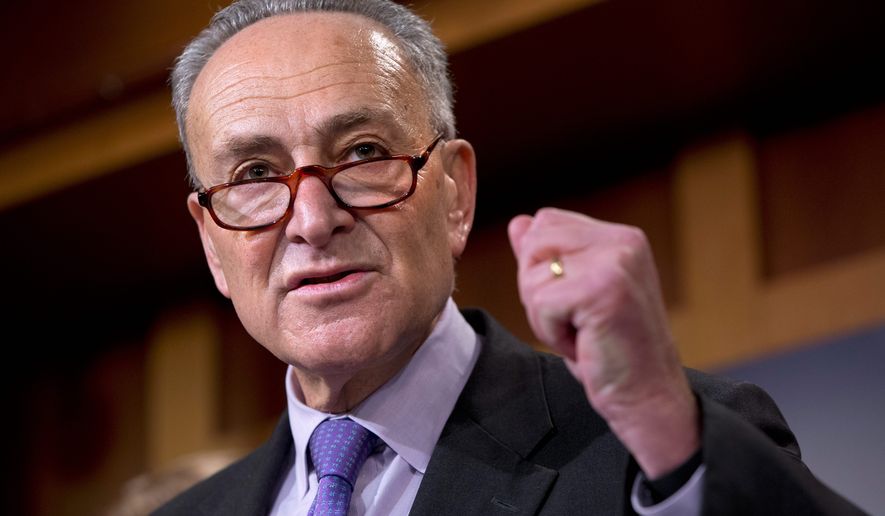Senate Democrats accused the GOP majority Tuesday of paying lip service to lead-poisoned families in Michigan and waffling in its response to the Zika virus that’s threatening U.S. shores, signaling they will use both crises as a prism for each party’s philosophy on federal intervention.
Democrats have decided to block a bipartisan energy bill until Republicans greenlight millions in federal aid for Flint, Michigan, as it reels from tainted drinking water, forcing negotiators to scramble for a deal that could break the logjam.
And they’ve already rallied behind President Obama’s $1.8 billion plan to fight the Zika virus, which has been tied to a serious birth defect in Latin America, saying the GOP and its presidential hopefuls are too busy litigating Mr. Obama’s regulatory agenda to mount an adequate response to the crises.
“The private sector isn’t going to stop the Zika virus; the private sector isn’t going to get the lead out of the water in the pipes in Flint; the private sector isn’t going to protect us from ISIS,” said Sen. Charles E. Schumer, New York Democrat, using a common acronym for the Islamic State terror group.
Republican leaders insist they are taking a sober approach to both issues. They invited the administration to explain whether it has the resources it needs to fight Zika, and they say it is the Democrats who won’t take yes for an answer on Flint.
Sen. Lisa Murkowski, the Alaska Republican who wrote the energy bill, said last week she proposed an amendment that would provide $550 million to Flint — $50 million upfront — but that it was spurned by Democrats, prompting Sens. Debbie Stabenow, Michigan Democrat, and James M. Inhofe, Oklahoma Republican and chairman of the Senate Environment Committee, to go back to the negotiating table.
Flint has been plagued by lead-tainted water since the city switched its water supply from Detroit’s system to the Flint River in early 2014. Corrosion from inadequately treated water caused lead to leach from pipes.
Michigan Gov. Rick Snyder, a Republican, declined to testify about what led to the crisis before the House Democratic Steering and Policy Committee on Wednesday, citing plans to stay home and propose an additional $195 million in state funding to address the crisis.
The Associated Press said that proposal includes $25 million to replace lead-contaminated pipes, bringing the total state allocation to the crisis to $232 million should lawmakers approve the plans.
Senate Democrats still want guaranteed federal funding for Flint, and have pledged to pursue an actual deal instead of settling for show votes on amendments.
“Their nightmare, which began almost two years ago, is an emergency that requires a federal response,” Senate Majority Leader Harry Reid, Nevada Democrat, said.
More than once, Democrats have tied the Flint situation to Mr. Obama’s request for resources to fight Zika at home and abroad, saying both natural and man-made disasters demand their attention.
But Senate Republicans who exited an amicable briefing on the Zika threat said they want to make sure the administration is using existing funds wisely before they pony up more.
“Before you appropriate money, you want to make sure it’s going to the right place, to the right people, to do the important things,” said Sen. Lamar Alexander, Tennessee Republican.
Republicans suggested Tuesday there is roughly $1.4 billion in unspent Ebola funds that could be shifted to the campaign against Zika, which may have caused an uptick in microcephaly — a condition in which babies are born with abnormally small heads — in Brazil and other Latin countries.
But administration officials insisted they needed new funding to fight the pesky mosquito breed that spreads Zika and to protect the homeland.
Health and Human Services Secretary Sylvia Mathews Burwell said funds for the Ebola fight have been obligated, and that it would be foolhardy to redirect them.
“That global health security money was appropriated for over a five-year period,” she said. “That’s what the Congress advised us to do. The plans are in place.”
• Tom Howell Jr. can be reached at thowell@washingtontimes.com.




Please read our comment policy before commenting.